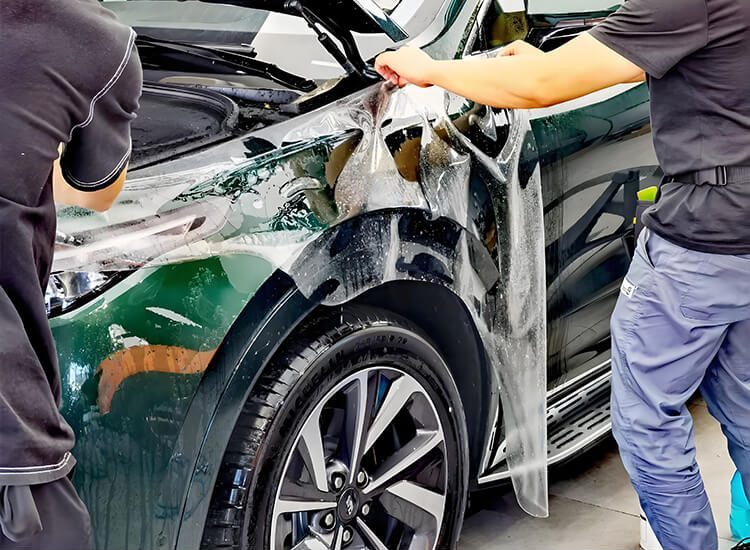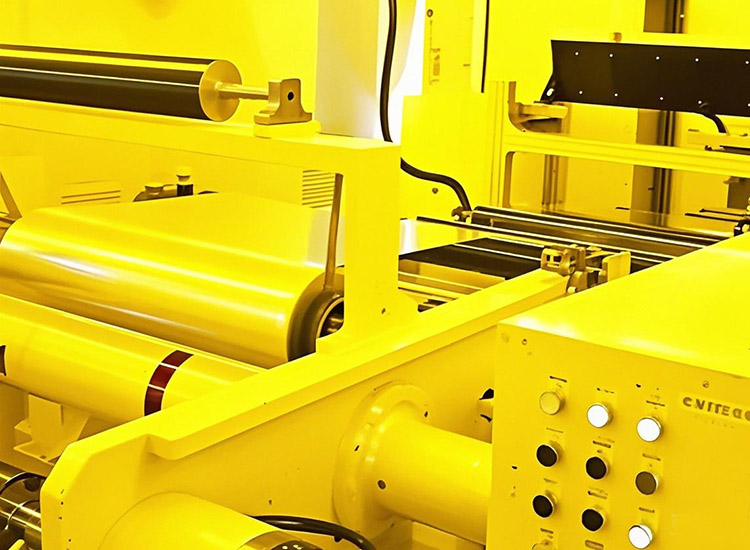Auto Paint Protection Film: Is It Worth the Investment in 2025?
If you own a car, you’ve probably noticed how quickly scratches, stone chips, and daily wear can affect its paint. Auto paint protection film is a solution designed to keep your car looking new while preserving its value over time. In 2025, more drivers are asking themselves whether investing in paint protection film for cars is worth the cost, especially with options ranging from DIY kits to professional installations. Understanding how it works and what benefits it offers can help you make an informed decision. Learn more about PPF Film Explained to understand the science behind it.
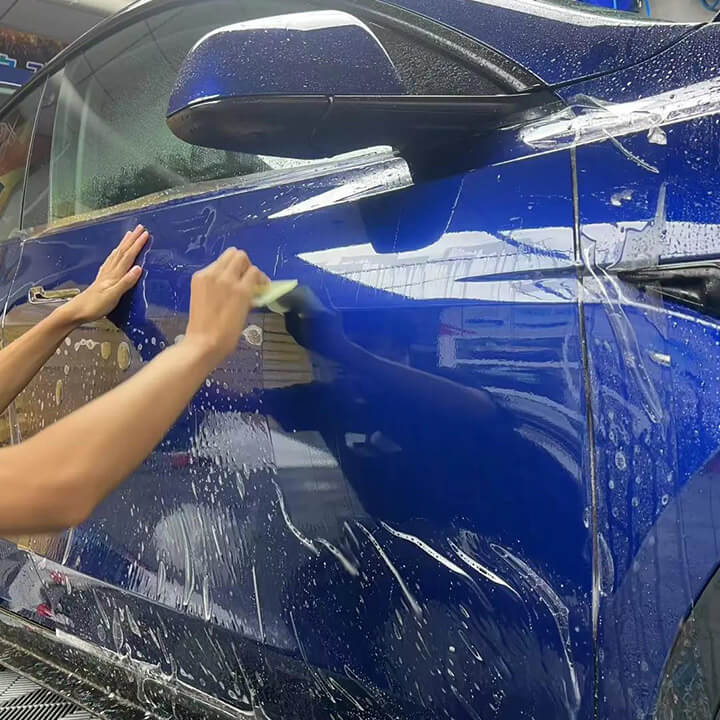
Why Auto Paint Protection Film Matters
What It Does for Your Car
Car protective film, also known as vehicle paint protection film or clear bra for cars, acts as a transparent shield over your car’s paint. It prevents damage from rocks, debris, UV rays, and minor scratches. Unlike wax or ceramic coatings, auto PPF forms a physical barrier that absorbs impact, keeping the paint beneath flawless. For owners in cities like Los Angeles, Dubai, and Sydney, where environmental factors and road conditions are harsh, the benefits of automotive paint protection are especially noticeable. To explore the different types of films available, check out Types of Paint Protection Film.
Long-Term Value
One of the main reasons people wonder is auto paint protection film worth it is because of its cost. While the upfront investment may seem high, the long-term value is significant. Maintaining original paint can drastically improve resale value, making the best auto paint protection film for resale value a smart choice. Over time, a well-maintained paint protection wrap can save you money on repainting or repairs. You can also read about How Long Paint Protection Film Last? for durability expectations.
Pros and Cons of Auto Paint Protection Film
Benefits You Can Count On
The benefits of auto paint protection film include scratch resistance, chemical resistance, and self-healing properties in some premium films. You also get protection from UV fading, bird droppings, and acid rain. Car paint shield film can even reduce maintenance time because dirt and grime are easier to clean. Many top brands like 3M auto paint protection film and XPEL auto paint protection film offer warranties that guarantee performance for years. For a full overview, see Top 12 PPF Brands For Cars.
Considerations Before Buying
On the flip side, there are some limitations. Auto paint protection film pros and cons must be evaluated carefully. High-quality films can be expensive, and lower-cost options might yellow or peel over time. Installation costs can vary depending on whether you choose professional installation or a DIY auto paint protection film kit. Additionally, improper application can cause bubbles or uneven coverage, reducing effectiveness. To understand cost considerations in depth, check PPF Coating Cost.
How Auto Paint Protection Film Compares to Ceramic Coating
Auto paint protection film vs ceramic coating is a common comparison among car enthusiasts. Ceramic coatings offer excellent shine and chemical resistance but lack the impact protection of a physical film. Automotive protective film provides a layer of armor that absorbs small stone chips and scratches. For people in cities like Toronto, Berlin, or Tokyo, where road debris and harsh winters are common, PPF offers superior protection compared to coatings alone. Some car owners even combine both for optimal results. For insight into materials used in PPF, visit Paint Protection Film Materials.
Cost and Investment Considerations
Understanding the Price
How much does auto paint protection film cost depends on vehicle size, film quality, and installation complexity. Full-body coverage is naturally more expensive than partial coverage for high-impact areas like hoods, bumpers, and mirrors. While some think is car paint film worth the money, it’s helpful to consider it as an investment in maintaining your vehicle’s appearance and resale value. For volume needs, see PPF Usage Volume to estimate coverage.
Making the Decision
If you are asking should I invest in auto paint protection film, consider your driving habits, environment, and car value. For new or luxury vehicles, protecting the paint from the start can prevent costly repairs. Many suppliers and manufacturers offer wholesale pricing if you purchase multiple vehicles or fleet coverage, making it more cost-effective for dealerships and car enthusiasts alike.
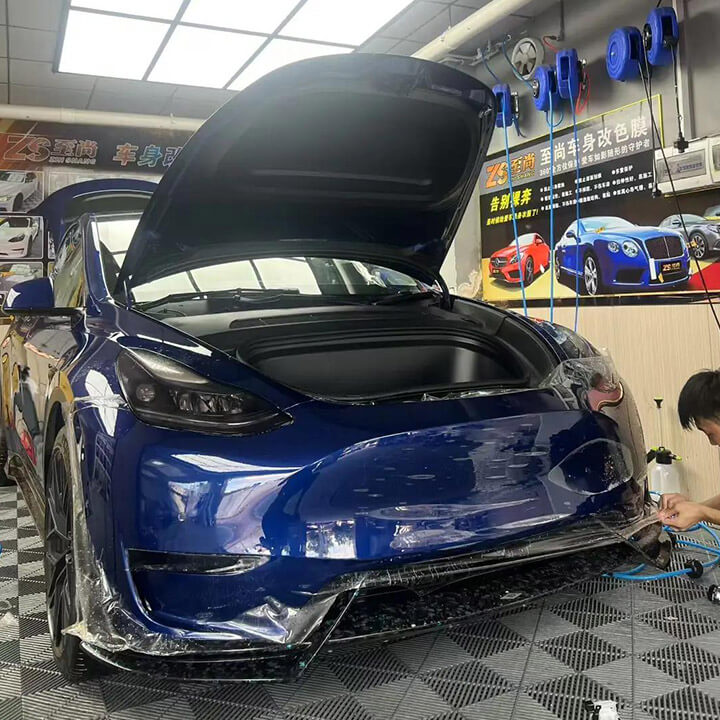
Installation and Maintenance Tips
Professional vs DIY
Auto paint protection film installation can be done by professionals or as a DIY project. Professional installation ensures a flawless finish and long-lasting protection. DIY kits are available for those who want a hands-on approach, but they require patience and attention to detail. Choosing the right method can affect the long-term value of auto paint protection film.
Care and Maintenance
Maintaining car paint protection film is relatively simple. Use gentle washes and avoid harsh chemicals. Many films have self-healing properties, meaning minor scratches can disappear over time with heat or sunlight. Regular inspections help identify areas needing attention, keeping your vehicle protected for years.
Market-Leading Auto Paint Protection Film Price Comparison
When considering how much does auto paint protection film cost, it’s helpful to compare top brands and options in the market. The table below highlights popular auto paint protection film products, their typical price ranges, coverage options, and key features:
| Brand | Coverage | Price Range (USD) | Key Features | Warranty |
|---|---|---|---|---|
| 3M Auto Paint Protection Film | Partial (hood & bumper) | $300 – $500 | Scratch & UV resistance, clear finish | 5 years |
| 3M Auto Paint Protection Film | Full car | $1,500 – $2,500 | High durability, self-healing, gloss enhancer | 10 years |
| XPEL Ultimate Plus | Partial | $350 – $600 | Self-healing, high clarity | 10 years |
| XPEL Ultimate Plus | Full car | $1,800 – $3,000 | Scratch & chemical resistance, gloss enhancement | 10 years |
| PreproPPF Standard | Partial | $250 – $450 | Factory-direct, clear bra for cars, durable | 5 years |
| PreproPPF Premium | Full car | $1,200 – $2,000 | Gloss enhancer, scratch-resistant, global free shipping | 8 years |
This table helps you evaluate auto paint protection film vs ceramic coating and determine which car protective film meets your needs and budget. Prices may vary based on location, car size, and installation method. Cities like Miami, London, and Singapore often have similar ranges, whether purchased from a manufacturer, supplier, or wholesale distributor.
Choosing the Right Brand and Supplier
Selecting the best auto paint protection film brand is crucial. Look for reputable manufacturers with proven track records. Some buyers prefer clear auto paint protection film for invisibility, while others might prioritize auto PPF with high gloss or enhanced durability. Global suppliers ensure you can access quality PPF whether you are in New York, Sydney, Dubai, or London.
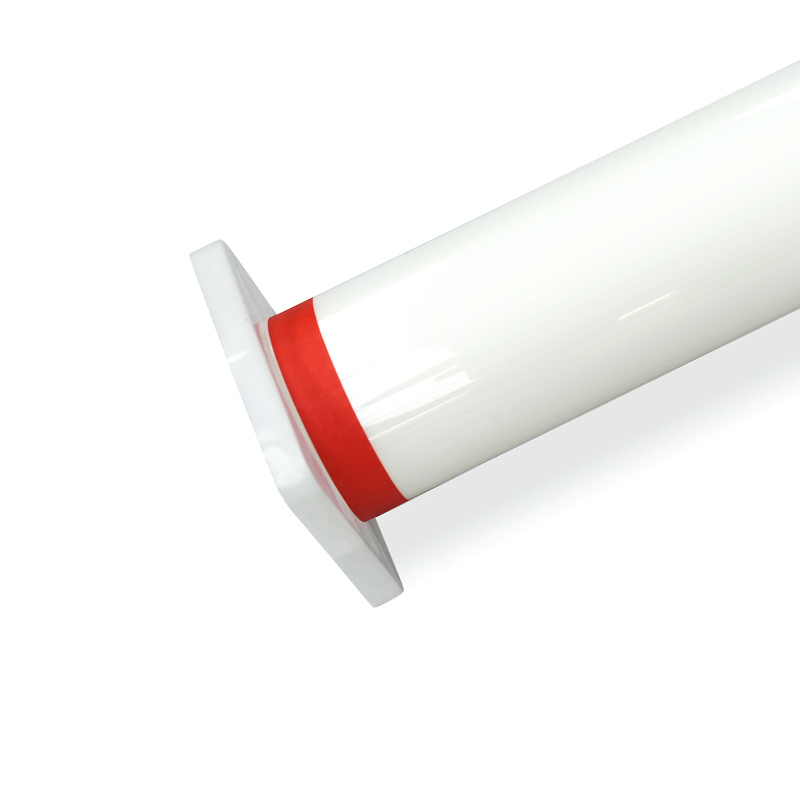
PreproPPF Car PPF PR-Q03
On a budget? Check out basic protection PPF PR-Q01, 5×50 ft, free shipping worldwide.
PreproPPF Factory Direct Advantage
PreproPPF is a manufacturer and supplier specializing in factory-direct auto paint protection film. With decades of experience, the factory ensures high-quality products and offers global free shipping. Customers can trust PreproPPF for consistent performance, whether they are in Los Angeles, Berlin, or Tokyo. Direct-to-consumer service guarantees cost savings and reliable delivery, making professional-grade automotive protective film accessible worldwide.
FAQ
What is the lifespan of auto paint protection film?
Most high-quality auto paint protection films last between 5 to 10 years, depending on care, driving conditions, and exposure to sunlight.
Can I install auto paint protection film myself?
Yes, DIY kits are available, but professional installation is recommended for a flawless finish and to avoid bubbles or peeling.
Does auto paint protection film yellow over time?
Premium brands like 3M and XPEL resist yellowing, but lower-quality films may discolor if exposed to UV and environmental factors for long periods.

